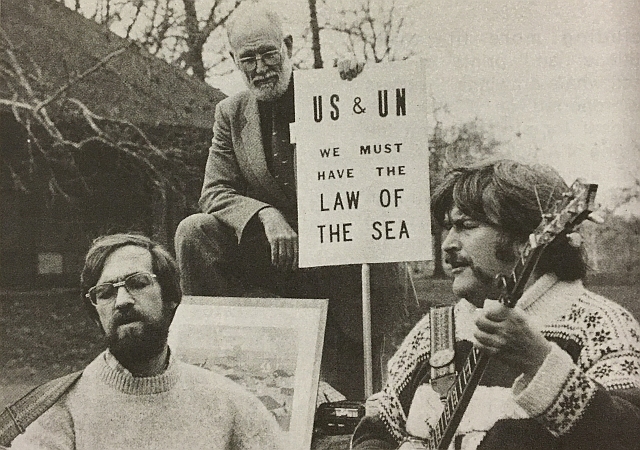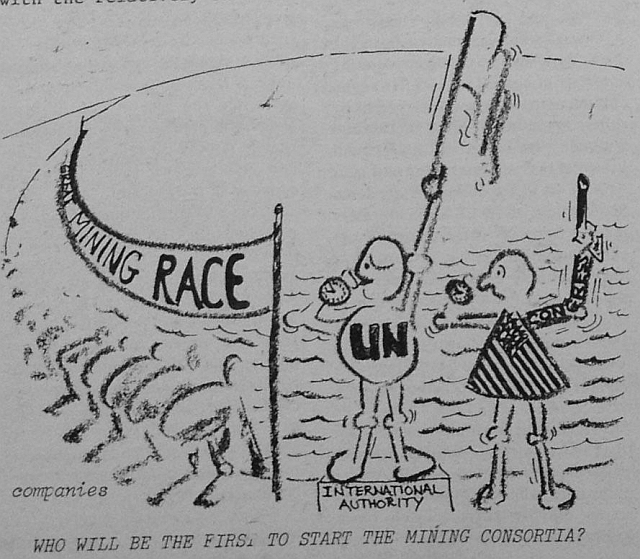My current research explores changes in the human use of the oceans beginning in the middle of the twentieth century.
During this period, new scientific knowledge and technological development made the oceans more legible to human society, and as a result, more susceptible to human impacts. The imperatives of economic growth and development at mid-century, combined with this new science and technology, pushed people to travel farther and faster on the ocean’s surface, draw greater amounts of living and non-living resources from coastal waters, and search for new sources of mineral wealth in the deep oceans.

The pace of these changes motivated government officials, scientists, lawyers, industry lobbyists, and civil society groups to come together in the 1970s to create a new framework for managing the ocean environment. After over a decade of painstaking negotiations in the United Nations, their efforts produced the United Nations Convention on the Law of the Sea, a multilateral agreement signed in 1982 that defines the rights and duties of states in their use of the oceans.
I place these events in the wider political and cultural contexts of the Cold War, decolonization, and the modern environmental movement, and investigate in detail the diplomatic negotiations, strategic thinking, and institutional arrangements that influenced this watershed moment in global ocean governance.

My research aims to shed light on questions that continue to confound policymakers today, such as how to address global environmental issues that affect all nations in general but none in particular, how to distribute the wealth contained in natural resources more equitably while also preserving valuable ecosystems, and how to use environmental regulation to create a more just and peaceful world.
Answering these questions is of vital importance as the effects of climate change in general, and their impact on the oceans in particular, become more severe with each passing day.